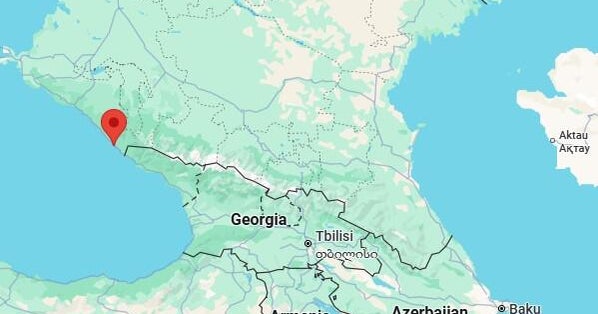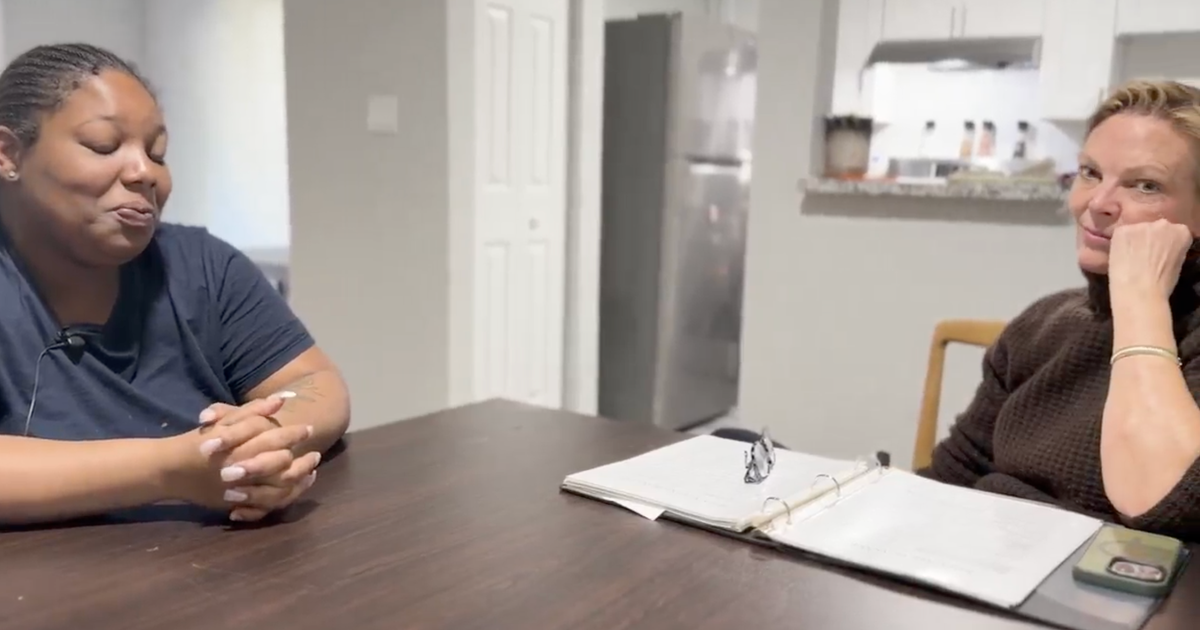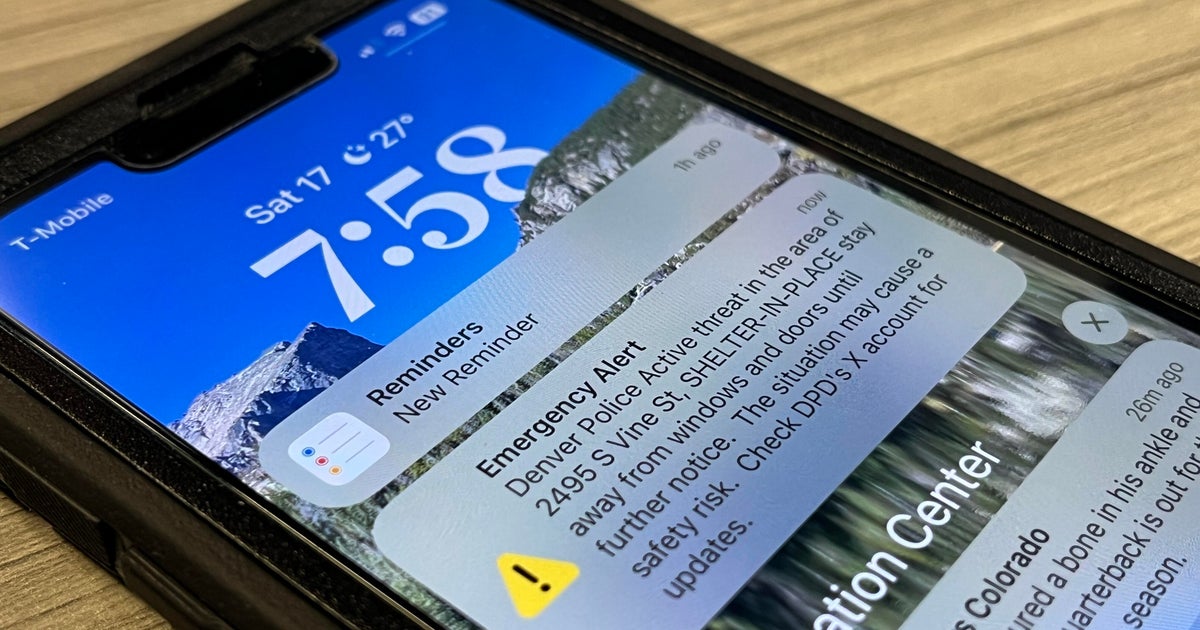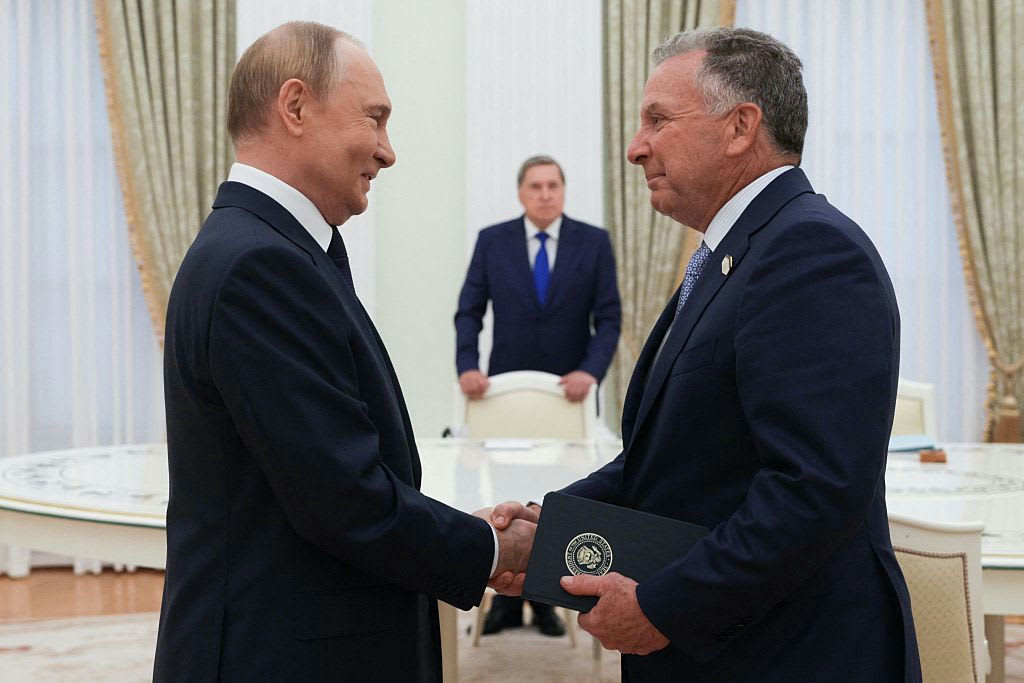David Miliband, International Rescue Committee president and CEO, on Ukraine's humanitarian crisis - "The Takeout"
Evidence of possible war crimes in Ukraine is mounting — and quickly — thanks to the proliferation of cell phones and other technology like drones, satellites and CCTV.
"This is a very well-documented crisis. This has not been done under cover. It's been done in full view of Bellingcat or New York Times satellites that are reporting on the facts," says International Rescue Committee CEO David Miliband. "It's the first cell phone war."
Miliband, a former Labour Party politician and former British foreign secretary, joined CBS News chief Washington correspondent Major Garrett on "The Takeout" this week to discuss the war in Ukraine and the humanitarian crisis spawned by Russia's invasion. Miliband identified three categories of people suffering in the weekslong conflict so far: those still trapped in cities and unable to receive aid, like the citizens of Mariupol, those internally displaced inside Ukraine, and those who have fled to neighboring countries outside of Ukraine.
He also criticized the U.S. and allies for their slowness to act. They "should have taken literally and seriously the buildup that happened before February 24," when Russia launched its invasion. While Russia appears to have consolidated its forces and withdrawn from the area around Kyiv, the nation's capital, "there remains real danger," he told Garrett.
The targeting of civilian structures in Ukraine over the last several weeks has raised accusations of war crimes against Russia.
"If you're a soldier in a conflict, you don't have a right to life. But if you're a civilian in the conflict, you have a right to life," he told Garrett.
Highlights from this week's episode with David Miliband:
Ukraine war and refugees: "There are three fronts to the humanitarian campaign in Ukraine and its surroundings. One is for civilians in besieged cities or in cities under fire. The most — the poster child for that is Mariupol, obviously, a city of 450,000 people in the south of the country, southeast of the country. Now, 120,000 people left and a city without water, electricity or heat for six weeks now. So with bombardment as well but they're not the only ones. So that's, first of all, a set of enormous needs for people who were accountants or journalists or charity workers or housewives leading their own lives just six weeks ago. And they've got enormous health, food survival needs. The second group is you get to people on the move inside the country, and that's much harder to count because they're not crossing a border. And that's where we think there is 3 million, I think in some estimates, 5 million and others...We call them internally displaced people, they're refugees within their own country... They're women and kids, remember, because the men are staying to fight. And so they're already going through the trauma of family separation. They don't know whether they'll see their husbands, their fathers, their brothers again. They don't know if they'll see their own homes again, but they are moving to safer areas now. Obviously, the course of the war over the last week to two weeks means some are beginning to think about or even going back. They're people on the move in their own country.They need cash support. They need trauma support. They need health support. And then the third group, which is where you get to the technically, the refugees themselves...Yesterday, the UN High Commissioner for Refugees had 4.3 million people had actually crossed a border, mainly Poland, but also Moldova, Hungary. They've crossed into Europe as refugees, people who- for whom it's not safe to go home to their homeland. And that's the third front of the crisis. Those are people who are safe, so they don't need to be, quote unquote, protected from bombs. But they do have enormous needs. They have no notion where their future is going to be. They need support for their kids. They may have medical needs."
War in Ukraine: "I think that Ukraine is an event which is happening over weeks, but which will reverberate over decades. So I think you're right to both emphasize the extraordinary humanitarian need immediately, but also the geopolitics, because this is about Europe, but it's also about America. It's about the West. It's about international law. And it's about the rise of impunity, which is the feature of the war zones where the International Rescue Committee works. The people who are combatants in battle, both countries, but also non-state actors, are acting beyond the law without accountability... That's what's at stake in this argument about how to manage international relations, but also how to handle this interconnected world that we live in."
Impending threat: "We should have taken literally and seriously the buildup that happened before February the 24th, as the intelligence agencies in this case correctly predicted and as the Russian government denied. They denied any suggestion. I mean, Sergei Lavrov was my opposite number as foreign minister. He denied absolutely bluntly that there was any intention of an invasion. So, the fact that the troops will be there, the fact they will consolidate does mean that the threat remains. But remember, they've also got the experience of the last five or six weeks. And that means that they will be consolidating carefully before they make any preemptive moves... Ukraine was effectively surrounded and the fact that Belarus in the north should be within the Russian sphere so strongly, and the fact that the south is still under Russian control from Crimea means there remains real danger. And so the military dynamics of this, I think, are very open."
Social media puts more of war on record: "This is a very well documented crisis. This has not been done under cover. It's been done in full view of Bellingcat or New York Times satellites that are reporting on the facts, and they can tell you where the- when the bodies appeared on the roads. And they can they can document that... It's the first cell phone war."
What's a war crime? "International law guarantees the right to life of civilians in conflict. If you're a soldier in a conflict, you don't have a right to life. But if you're a civilian in the conflict, you have a right to life. And it's a responsibility of combatants in war to uphold that right to life. And what international law shows is that serious breaches of international law constitute war crimes. And so if you bomb a hospital, that's a war crime. Because there are civilians inside. And there's often dancing around this, sometimes countries say, 'Well, the civilians were in — what were next door to the soldiers. So, we were trying to kill the soldiers, and we end up killing citizens.' That's no excuse, because the requirement of international law is absolute."
Executive producer: Arden Farhi
Producers: Jamie Benson, Jacob Rosen, Sara Cook and Eleanor Watson
CBSN Production: Eric Soussanin
Show email: TakeoutPodcast@cbsnews.com
Twitter: @TakeoutPodcast
Instagram: @TakeoutPodcast
Facebook: Facebook.com/TakeoutPodcast






